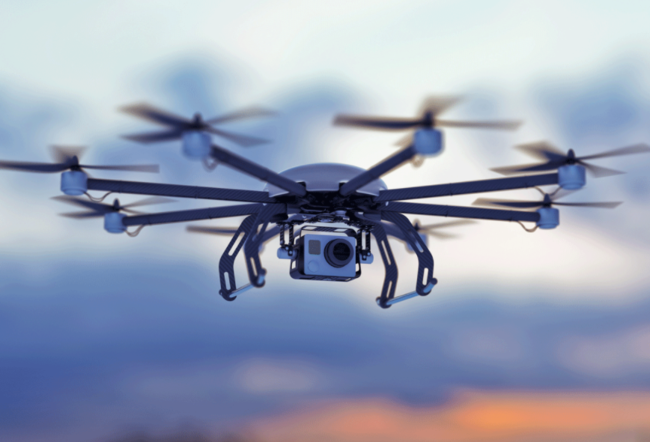Bengaluru: The first experimental long-range drone flights in India are due to take off later this month in parts of Karnataka, Tamil Nadu, Rajasthan and Punjab, said government officials and company executives, who expect successful trials to pave the way for drone-based deliveries of medicines, e-commerce orders and food, among other things.
These drones that are permitted to fly up to around 20 kms at one stretch, mark a first for the country which currently permits only drone flights within the visual line of sight (VLOS) or 450 metres from the operator.
Later this week, a consortium of companies led by global drone services provider ANRA Technologies will pilot deliveries of medicines in tie-up with the Indian Institute of Technology Ropar and experiment with delivery of online food orders along with Swiggy in Jawra, Rajasthan. Separately, teams led by Throttle Aerospace and Daksha Unmanned Systems will pilot deliveries of medicines in Gauribidanur in Karnataka and Thiruvalluvar outside Chennai, respectively.
In May 2019, the Directorate General of Civil Aviation had released an expression of interest to conduct experimental BVLOS (beyond visual line of sight) drone flights to gather learnings ahead of framing regulations to govern drone-based deliveries and other long-range drone use cases. “We hope to release the draft guidelines for public feedback by Dec 31, 2021 and the final guidelines by Mar 31, 2022,” said Amber Dubey, joint secretary at the ministry of civil aviation.
The experimental flights are one of the key steps in gathering data for framing of BVLOS rules, Dubey added.
“India is a little behind, despite all this push,” said Amit Ganjoo, CEO of ANRA Technologies, which will utilise its SmartSkies platform to manage the drone operations, similar to the systems it has deployed in other countries as well. ANRA is building a drone delivery network connecting hospitals in Scotland, apart from several other projects.
“In many parts of the US and Europe, innovation and experimentation started happening back in 2015 and now the rules are falling in place and they are operationalising the small UAS (unmanned aircraft system) segment. You won’t see last-mile deliveries, but at least mid-mile logistics and surveillance there,” he added.
Elsewhere, Throttle Aerospace, will conduct pre-trials on June 18-19, before formal launch of its experimental flight on June 21. The company has partnered with Narayana Healthcare to carry out tests for delivering medicines to specific points.
“Our software will generate on-demand deliveries, which our service team will need to pack and load onto the correct drone. The drones will then autonomously take off, fly to the destination and land,” said Nagendran Kandasamy, CEO at Throttle Aerospace. “The DGCA has asked us to try a winching system also, where our drone will hover at a certain height and through a tether the medicine delivery box will be lowered.”
Daksha Unmanned Systems said that it was looking to begin trials in the coming weekend.
“We’ll be doing various activities such as mapping of the area and material movements over a short distance over a span of 20-30 days. In the future, we want to use this technology mainly for medicine movements,” said its CEO Ramanathan N.
Of the 34 consortiums that had expressed interest to participate in the BVLOS experiments, the BEAM Committee had granted the initial approval to 20, including those floated by budget airline SpiceJet, Nandan Nilekani-backed ShopX and Google-backed Dunzo.
So far, only ANRA, Throttle Aerospace and Daksha Unmanned Systems have received the final go-ahead.
Covid Impact
In the midst of the Covid-19 pandemic, India is also toying with the idea of delivering vaccines and medicines using drones.
After the Telangana government said last month that it would look to use drones to deliver Covid vaccines, HLL Infra Tech, a subsidiary of government-owned HLL Lifecare, floated an expression of interest for delivery of vaccines and drugs using drones in areas with difficult terrain, Moneycontrol.com reported on Sunday.
The drones which are being sought by the Indian Council of Medical Research (ICMR) will need to travel up to 35 kilometres, fly at an altitude of at least 100 metres and take off and land to deliver the payload, it said.
Article Credit: vnexplorer.net
